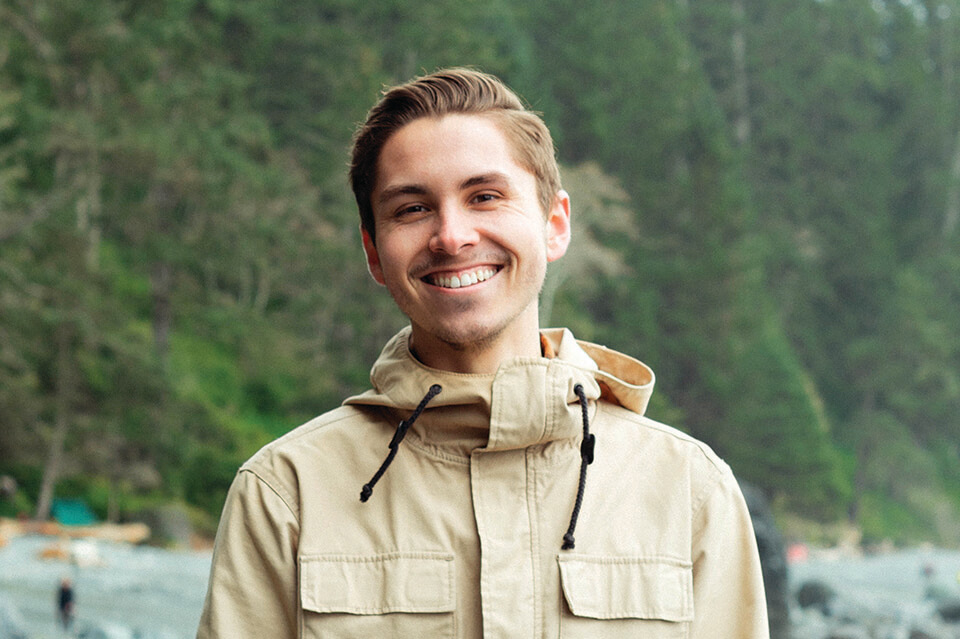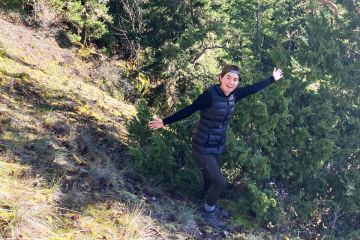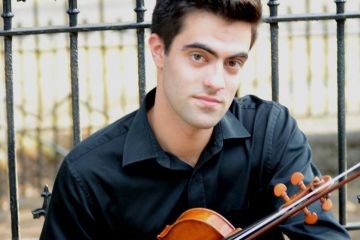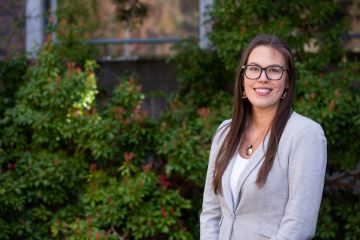Science grad talks hands-on research, co-authored paper
- Dorothy Eggenberger

Most university students switch majors before they reach graduation—not Chris Anderson. “I was learning about the nervous system in my grade 12 science class when I realized how much we didn’t know about it,” says Anderson, “That’s when I knew I wanted to study neuroscience.”
Anderson graduates this month with his BSc in neurobiology. He is also one of the few undergraduates who has already co-authored a research paper—with a second paper on the way. His key to success, he says, is building strong relationships with his professors—don’t hesitate to ask questions and seek opportunities outside of the classroom.
"Faculty and instructors are always looking for undergraduate students to help out with their research, but they’re not necessarily going to post about it. They want you to come to them."
Biology professor Raad Nashmi was one faculty member Anderson reached out to, and eventually Nashmi asked him to volunteer in the Nashmi Neurolab. The team used a mouse model to study a degenerative disease called phospholipase A2G6-associated neurodegeneration. The disease affects a region of the brain that deals with motor control. Anderson compared the number of neurons present in that region in mice that had the disease against mice that didn’t to see if there was a difference.A few months after the study concluded, Nashmi asked Anderson if he’d like to be listed as a co-author in the study. Anderson was both surprised and thrilled.
He continued working with Nashmi—this time in a directed studies course. Focusing on the same region of the brain, Anderson worked with Nashmi and his graduate student to look at co-localization of different synapses. The work is part of a larger paper which, when published, will be Anderson’s second co-authored paper.
If you want to pursue research, directed studies is a great stomping ground and also a great way to get your foot in the door. I’ve always been super interested in research, but I wasn’t certain if it was something I wanted to do long-term. Not only did I cement my decision to pursue my master’s, I was also hired to two research positions this summer.
—Chris Anderson, UVic class of 2021
This summer, Anderson is research assistant to biology professor Bob Chow and his graduate students. The team is studying three types of bi-polar cells in the eye that connect the outer retina to the inner retina, enabling you to process what you see. “I’ll use a process called immunolabeling,” explains Anderson, “Under a fluorescent light, the antibodies are fluorescently labelled, so it looks like something like a neon mosaic.”
He’s also working with Nathan Lachowsky, a professor in public health and social policy, and the Community-Based Health Equity Research group on the Canada-wide 2SLGBTQQIA+ COVID-19 survey.
“I’m so happy I chose UVic because I’ve met so many life-long friends here, so many wonderful people including my current partner of four years. This was a great choice for me. It’s a great school and I can’t complain about it. I’m happy I get to stay at UVic because I’ve enjoyed my time here so much.”
After completing his degree in five years, he is eager to advocate for taking your time. “There’s no right or wrong timeline to complete your degree. I struggled a lot with taking five years instead of the ‘normal’ four,” explains Anderson, “You can take as much time off as you need. You can go to school, take a semester off, come back to school do that sort of thing. You shouldn’t be rushing something you don’t need to rush. It’s okay.”
Anderson will begin studies for his master’s in neuroscience this fall under Chow.
Photos
In this story
Keywords: convocation, research, biology, brain, neuroscience, public health and social policy, health, community, COVID, administrative, student life
People: Chris Anderson
Publication: The Ring





